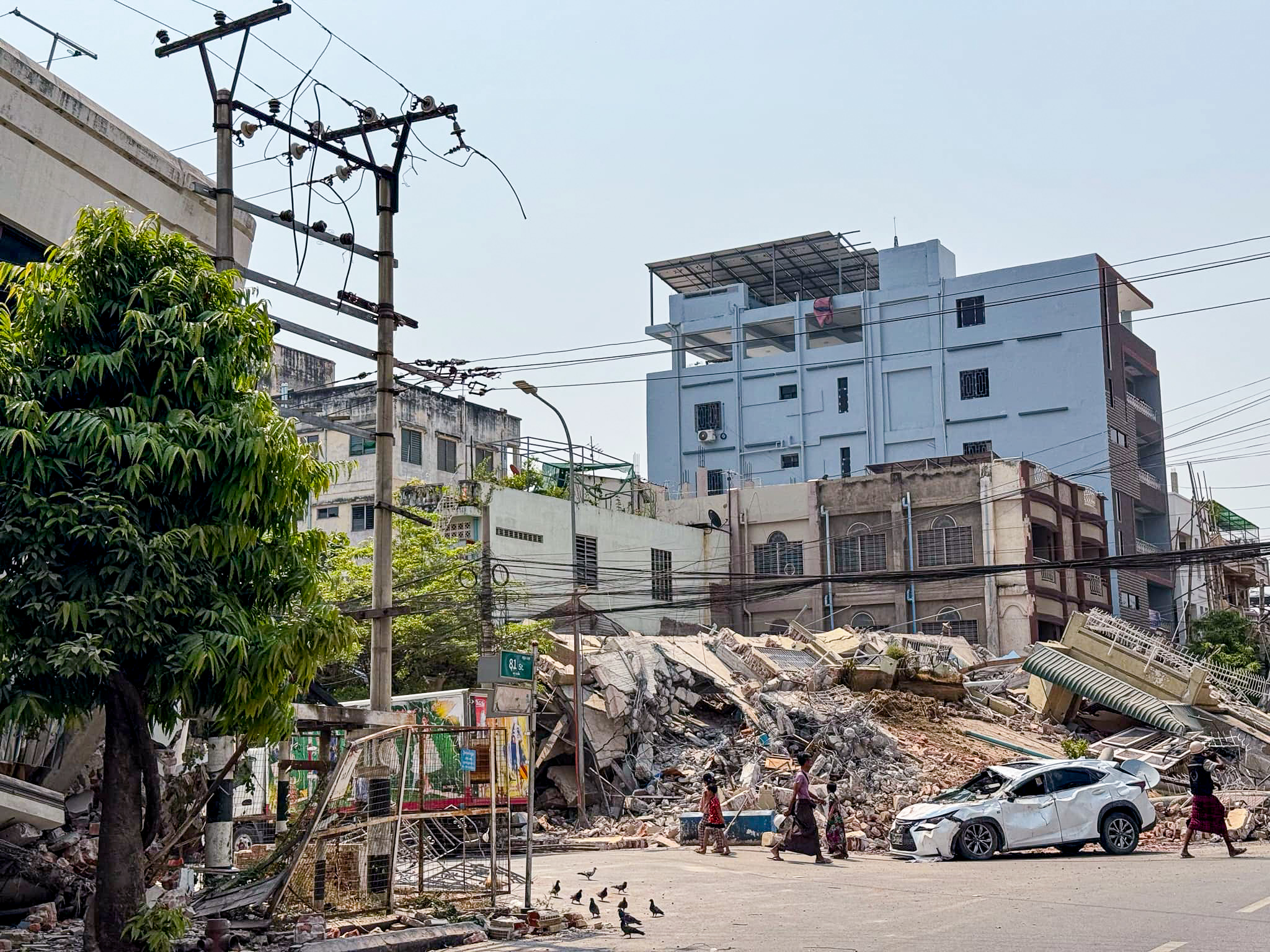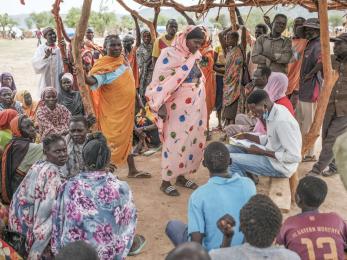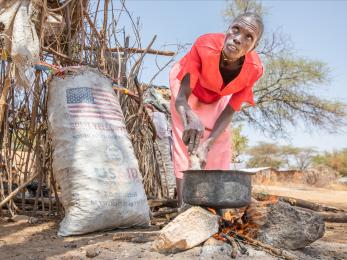A tale of overcoming: One girl's journey from orphan to leader

The dirt road outside her classroom hums with activity. A pair of goats bleat as they amble past the open door. Children and bicycles whiz by, shrieking and kicking up dust. The afternoon call to prayer vibrates in the hot air, and a group of young men line themselves neatly on their knees just outside the doorway.
Despite the distractions, Suwaiba remains unrattled.
To see Suwaiba command her class is to also witness her strength — an unflappable determination forged from staying the course in a world filled with things trying to knock her off track. And with 24 sets of young eyes trained on her, she confidently presents the day’s lesson — financial literacy — from her place at the front of the room.
An hour later, after she has sent her students home for the evening, Suwaiba takes a seat on a bench in the doorway of the empty classroom. She is focused, again, ready to tell her story, her trademark steel gaze bathed in light from the late day sun.
The difficult road for young people in Nigeria

Suwaiba was orphaned as a child, she explains, first losing her father at age 3 and then her mother at 9. Now 18 and living in Gombe, Nigeria with her uncle and his family, each day brings a new challenge for her to overcome.
Nigeria has one of the largest youth populations in the world, but high levels of unemployment, poverty and instability leave its young people at risk of drugs, gangs and violence. The prospects for girls are even more hazardous, with many unable to finish school and expected to marry young, never gaining the skills to earn money or be independent.
In a place where 43 percent of women are married before 18 and around one-third of the population is accepting of domestic violence, it’s inevitable Suwaiba has seen these problems ripple through her own community, citing rape, early pregnancy and drugs as things her peers are up against. Suwaiba, too, has struggled with a local gang harassing her to join them.
“It is destroying and it is a source of concern,” she says.
And then there is the impact of Boko Haram, which has terrorized communities and fueled a humanitarian crisis throughout northeast Nigeria for nearly a decade.
“I can still recall the day Boko Haram invaded Gombe,” Suwaiba says. “I was in school and they had to rush to come get me. While we were running people were falling, there were bullets flying everywhere. It was chaos.”
The invasion was devastating: persistent violence fueled fear, poverty and hunger, and fractured families. One of Suwaiba’s own family members was killed by a bomb blast in the local market, and she was too anxious to concentrate on her schoolwork.
“That period was a very difficult one for me,” she says. “I was traumatized.”
Fighting back for her future

Any one of these incidents could have derailed Suwaiba, but she hasn’t let them. If anything, she’s pushing forward with more force than ever before.
Read Jummai’s story about rebuilding stronger after Boko Haram ▸
As security improved in Gombe, Suwaiba began to feel safer, enough to finish school and participate in our girls group in her community. The groups are meant to offer a safe space for girls to gather, learn and recover from crisis, but Suwaiba had another motive.
“Immediately I was told it was a learning program and I took interest, because I love learning,” Suwaiba says. “And I was ready to learn because I thought if I am able to concentrate, I will be able to replicate it in my community.”
So Suwaiba absorbed the lessons — personal hygiene, finance, self confidence, communication and more — with a singular goal in mind: to educate others.
“I learned many things, which I was so excited to teach other adolescents in my community,” she explains. “Since I was in the safe space I was always thinking about establishing this [space of my own], so that made me really concentrate.”
Completing the girls’ group program transformed her own life too, giving her the courage she needed to stand up to the local gang that was bothering her. “[I] now have the confidence to stay away from ... anything that can stand as a threat to my future,” she says.
Emerging as a young leader

Driven to share her knowledge, Suwaiba independently built her own safe space from the ground up, asking permission from her community leader, identifying girls from her community and initially teaching the curriculum from her home, before the local mosque offered her the use of the classroom where she sits now.
When she talks about being a leader and a mentor for the other girls, her face lights up. “Each time I’m there I’m always very happy,” she says. “I get most excited because the girls are always concentrating.”

“[I want] to help others gain self-respect and to help the young ones who are like me,” Suwaiba says, “because I believe whatever I do for them, they will be able to do for others, and the community will be educated.”
She has an intrinsic desire to lift others up, a trait she’ll acknowledge but won’t take credit for. That, she says, is owed to her parents.
It makes sense, then, that Suwaiba has more benevolent ambitions: she teaches the twice-weekly group on top of studying for college entrance exams, so she can get a degree, become a pharmacist and serve her community.
As she readies to leave for the evening, there is no sign of the unsure, traumatized girl she says she once was. And she speaks with a directness that falsely suggests her accomplishments aren’t remarkable, instead, she is simply doing what anyone would.
“I don’t know [if my life has been difficult],” she says quietly. She takes a deep breath and pauses to collect her thoughts. “When I think through it, I do feel things are very hard, especially without my parents.”
“But,” she adds,“I just have to move on in life.”


